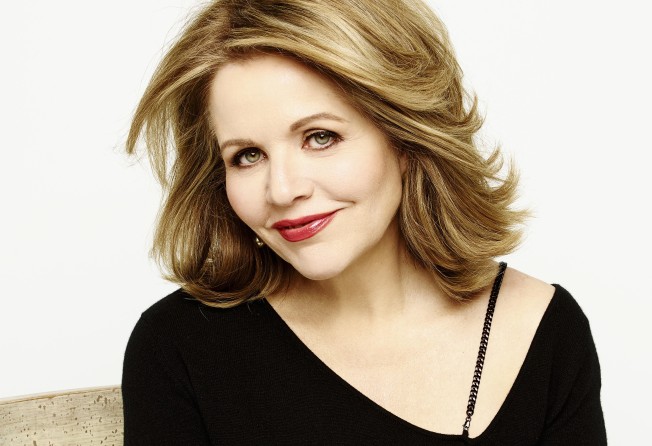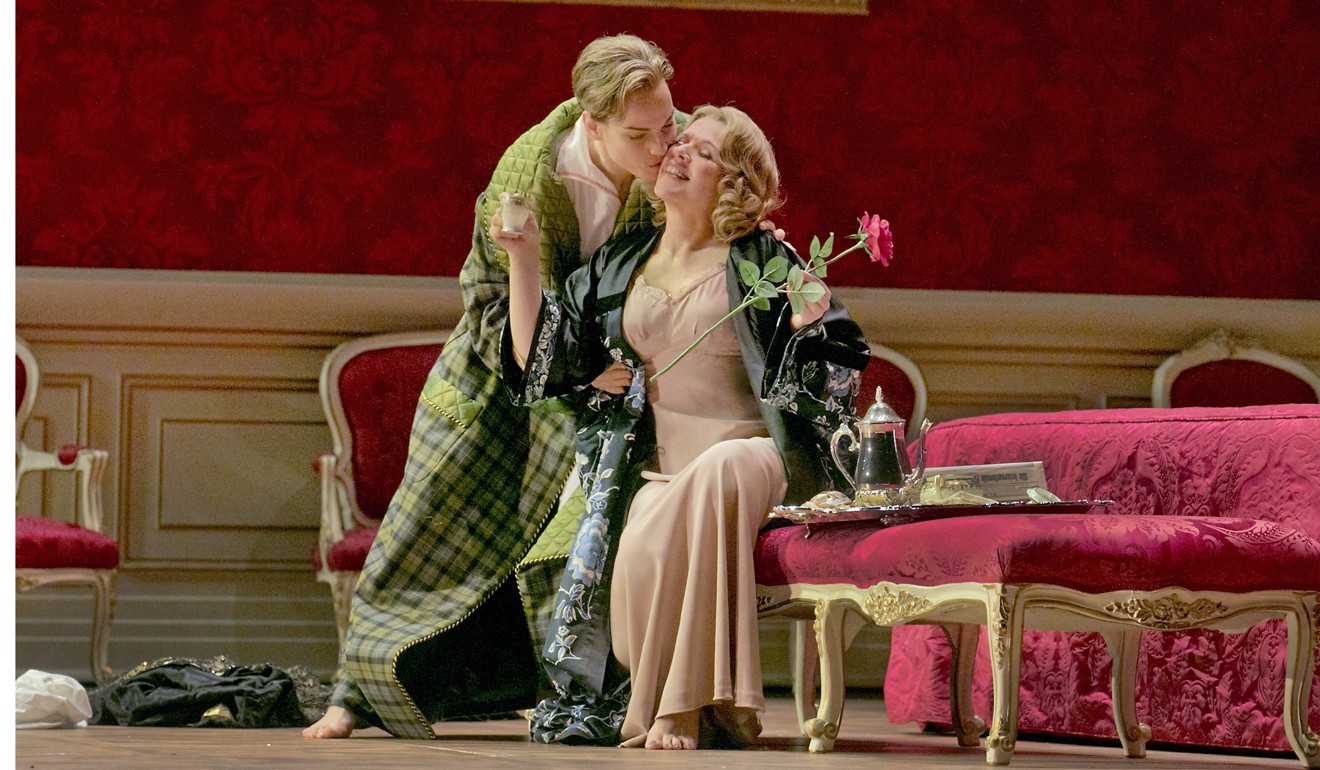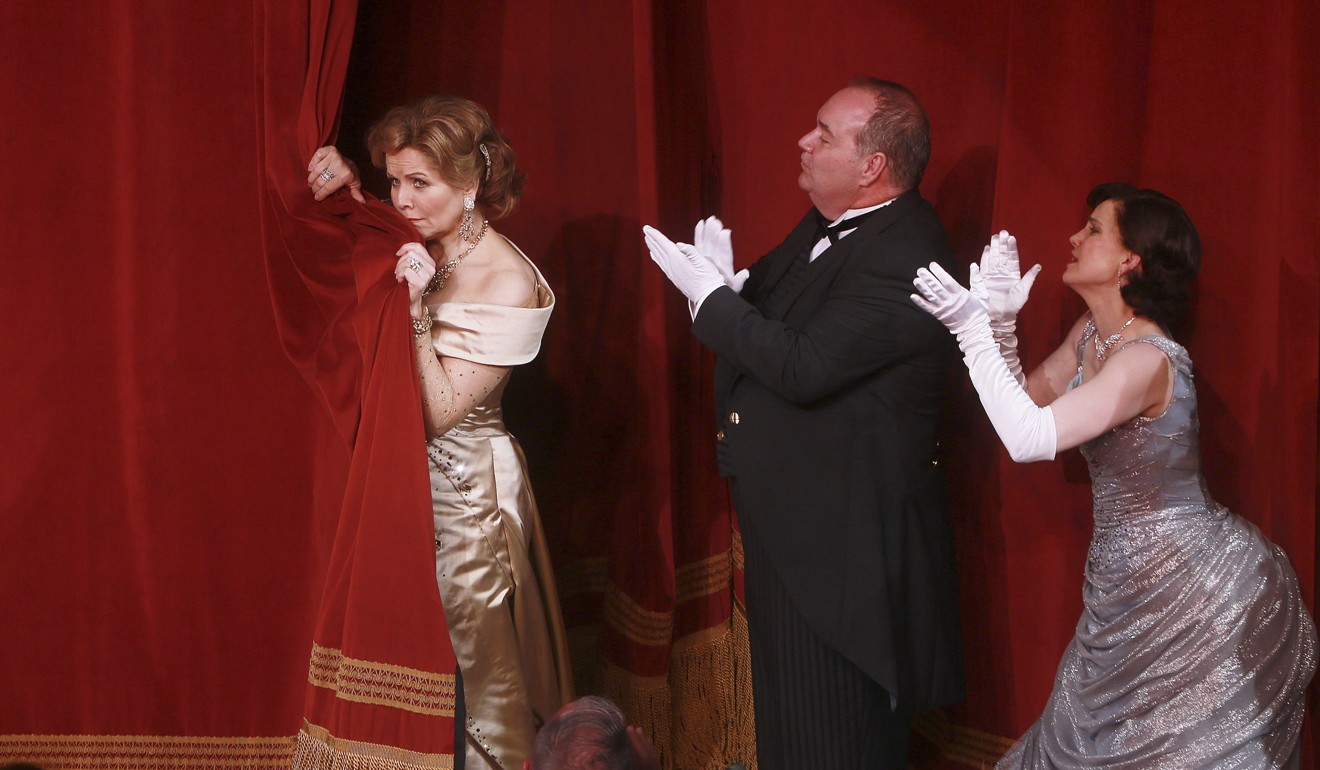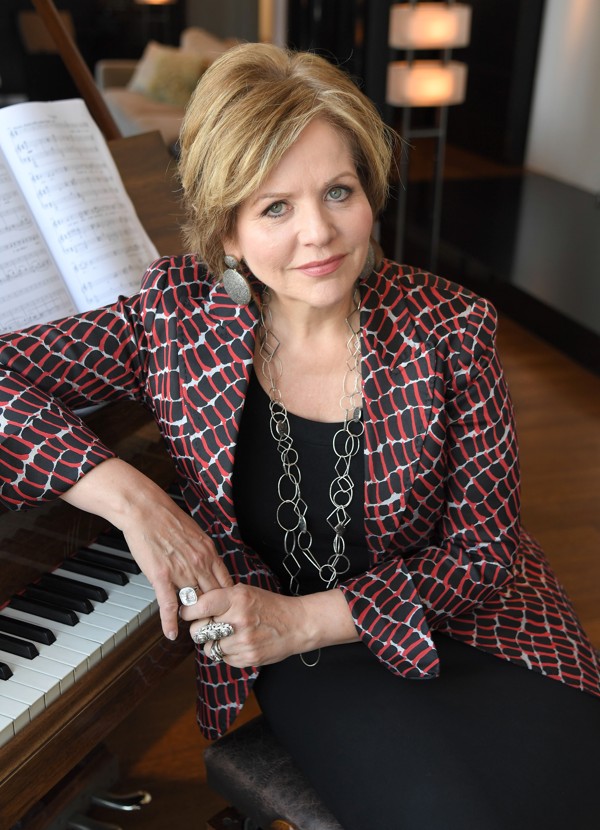Ahead of Hong Kong recital, soprano Renée Fleming says she’s focusing on lieder, show tunes and new operas
When Fleming announced she would no longer perform her classic operatic roles, some assumed she was retiring. But as she tells the Post, she plans to seek out roles in new operas and continue exploring all genres of music

Renée Fleming, America’s most popular opera singer, drew gasps from her fans when she said her performance in Richard Strauss’ Der Rosenkavalier, which ended its run at New York’s Metropolitan Opera in May, would be the last time she’d perform any of her classic roles.
But audiences were relieved to find out the soprano wasn’t planning to stop singing entirely – far from it. Fleming says she’s still going to perform vocal recitals and newly written operas, and will continue her occasional forays into Broadway musicals, jazz, and pop.
The glamorous diva, who performed in Hong Kong in 2013, returns to the Cultural Centre on June 20 for a vocal recital as part of this city’s 20th anniversary celebrations of the handover.
Accompanied by pianist Hartmut Höll, Fleming will perform works by Brahms, Puccini, and Saint-Saëns, among others, as well as popular tunes from West Side Story and The Wizard of Oz.
Six songs by Brahms, including Ständchen and Vergebliches Ständchen, are the centrepiece of the performance. Brahms never wrote an opera, but his songs are noted for the way the music carefully expresses the poetry of the lyrics.
“These Brahms songs are truly beautiful, and some – for instance the Wiegenlied – are very well-known and well-loved,” says Fleming.
“Despite that, I think they are not programmed as often as one would expect. In planning this performance with Hartmut Höll, who is known as an expert in German lied, I felt I had a rare opportunity to offer a very special performance of these wonderful pieces.”

Fleming appeared on Broadway in Living on Love, a screwball comedy about an opera singer, in 2015, and says she enjoys singing selections from Broadway shows. The Hong Kong performance includes I Whistle a Happy Tune, from The King and I.
“I was raised with Broadway musical theatre as part of my vernacular, along with many other kinds of music, and I think these pieces are a uniquely American addition to the musical literature of the world,”the 58-year-old says.
“I love the directness of expression, and the chance to sing in English. And, perhaps because there were Hollywood films of these shows, I find that these songs are known and welcomed almost wherever I go.”
The switch from singing classical songs to Broadway numbers while on stage is not too difficult, as long as you understand the nuances of each genre, she adds: “As with European opera or song literature, more than a change in vocal technique, the approach has to do with style. That’s one of the more refined and challenging aspects of the Western classical music that spans centuries,” says Fleming, a lyric soprano.
Fleming, who is also creative consultant for the Chicago Lyric Opera, selects the songs herself, and aims for an overall balance in the material, she says.
“Programming the music for my performances is something I take a great deal of time and care with,” she explains. “My programmes tend to be wide-ranging, both because they reflect my own quite diverse musical tastes, but also because I want everyone in the audience to find something he or she particularly enjoys.
“And I do try to shape the evening, so that transitions are not too jarring, while I take the audience on a journey through different moods and styles.”
Music is a force of nature, and opera singers are accustomed to having the power of an orchestra behind them when they sing. But it’s easy to adapt to a smaller set-up, she says, noting that she relishes the intimacy of collaborating with a single accompanist.

“While singing with a piano is different from singing with an orchestra, I find that it is not really a question of changing my vocal technique. The difference is more about the nature of the collaboration.”
It’s all about communication, she adds: “With an orchestra, there is a conductor who is keeping everyone on the same page, so to speak, and shaping phrases for dozens of musicians at once. When I sing with a pianist, the give-and-take is different, and can be more fluid.
“Ideally, we each pick up on subtle changes the other might make in performance, and can have a kind of musical conversation of equals in front of the audience.”
Fleming says she typically prepares for a recital like the one in Hong Kong weeks, or even months, ahead of time.

“As the performance approaches, I will rehearse with the pianist for the performance. I am fortunate to have performed almost all of this repertoire with Hartmut Höll before, so we have developed a great sensitivity to each other,” she says.
As she details in her book The Inner Voice: The Making of a Singer, opera singers spend much of their time avoiding situations that will damage their voice. The humidity of Hong Kong is not a problem, she says, but air conditioning is never good.
I want to find composers who understand how to write for the voice
“You are right that air conditioning can be a challenge, because it dries everything out, including the throat,” she says. “Hydration is very important for singers. But I don’t worry about the climate in a destination like Hong Kong. The more serious challenge comes from the air on aeroplanes, for instance, and the effects of long-distance travel.”
Although Fleming says she will no longer sing classic repertoire opera roles like the Marschallin in Der Rosenkavalier, she has not retired from opera, as was erroneously reported at first. Her decision was in part motivated by the fact that the women in classic operas are often victims; she wants to perform newly written operas with more modern female characters.

“First and foremost, I would love to find a more contemporary subject, and then something has to be a good vocal fit for me,” she explains.
“Beyond that, though, I want to find a character that is interesting and three-dimensional. So much of the classic repertoire for lyric sopranos tells the story of women who are victims, caught up in events beyond their control. I’m interested in playing characters who can be strong or complicated, and make choices about their own fate. And in looking at new music, I want to find composers who understand how to write for the voice,” she says.
She will also continue her adventures in other musical genres like jazz. Fleming sang in a jazz band when she was studying opera at college, and says she enjoyed it – she only gave it up because she was too shy to get the patter between the songs down, she says in her book.
“I started out singing jazz when I was in college, and my career almost went in that direction,” the soprano says.
“It’s freer than classical vocalism in that there is more interpretive room, and the possibility of improvisation. And what I learned singing jazz, and particularly scat, has informed my understanding of other music, for instance, baroque and bel canto ornamentation,” she says.
“I love vocalism of every kind, and great songs in any style.”